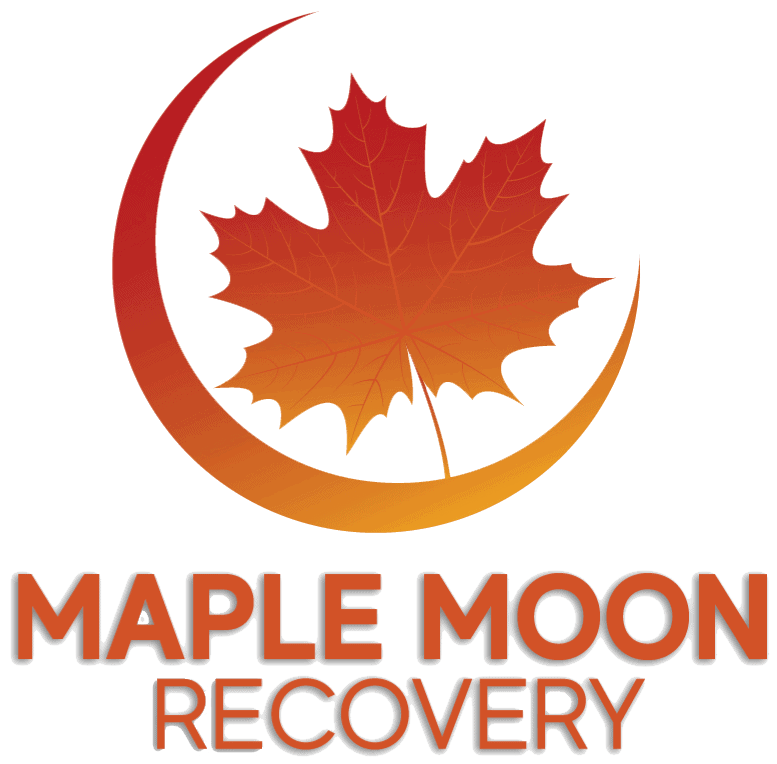Alcohol and drug abuse are pressing global health concerns that represent a pattern of addiction that results in harm to one’s health, interpersonal relationships, and ability to work and maintain a normal life. According to the 2022 National Survey on Drug Use and Health (NSDUH), 29.5 million people ages 12 and older had alcohol use disorder in the past year. Finding a solution to this problem is complex and requires an individualized tailored approach.
Among the solutions available, Disulfiram stands out as a noteworthy treatment for alcohol abuse. This medication, known for its effectiveness in deterring alcohol consumption, functions by creating an adverse reaction to alcohol intake. It is important to note that Disulfiram is most effective when used as part of a comprehensive treatment program that includes psychological support and lifestyle changes. It is not a cure for alcohol addiction but a tool to aid in the recovery process, helping individuals to break the cycle of addiction and work towards a healthier, alcohol-free life.

What is Disulfiram?
Disulfiram is a medication primarily used in the treatment of chronic alcohol dependence. Its chemical structure is defined as a carbamate derivative. The drug functions by inhibiting the activity of the enzyme acetaldehyde dehydrogenase, which is crucial in alcohol metabolism in the human body.
The medication was first discovered in the 1920s and has been used in the treatment of alcohol dependence since the 1950s. It was one of the first drugs approved by the FDA for the treatment of alcohol dependence. Its use has provided valuable insights into the biochemistry of alcohol addiction and has played a significant role in the development of other treatment strategies for alcoholism.
How Does Disulfiram Work?
When a person consumes alcohol, it is initially metabolized into acetaldehyde, a toxic compound that is further broken down into acetic acid by the enzyme acetaldehyde dehydrogenase. Disulfiram disrupts this process by blocking the enzyme’s action, leading to an increased concentration of acetaldehyde in the bloodstream.
This accumulation causes a series of very unpleasant reactions, known as the Disulfiram-alcohol reaction, which includes symptoms such as flushing, nausea, palpitations, and headache. These symptoms can occur as quickly as 10 minutes after ingesting alcohol and can last for several hours.
What Are the Common Uses of Disulfiram?
Disulfiram is primarily used for the management and treatment of chronic alcohol dependence. Its role in creating a physical deterrent against alcohol consumption makes it a powerful tool in the journey towards sobriety. Here are the common uses of Disulfiram:
- Aversion Therapy for Alcohol Dependence: The primary use of Disulfiram is in aversion therapy. When individuals taking Disulfiram consume alcohol, they experience unpleasant reactions such as flushing, nausea, and rapid heartbeat. This adverse reaction is intended to discourage the person from consuming alcohol, thereby aiding in the treatment of alcohol dependence.
- Support in Alcohol Abstinence: Disulfiram is used to support individuals who have decided to abstain from alcohol. It serves as a psychological deterrent, reinforcing the individual’s commitment to abstinence by the knowledge of the unpleasant effects that will occur if they consume alcohol.
- Part of a Comprehensive Treatment Program: Disulfiram is most effective when used as part of a broader treatment plan that includes psychological counseling, support groups, and other forms of therapy. This comprehensive approach helps address the underlying causes of alcohol dependence and aids in long-term recovery.
- Research Tool: In addition to its therapeutic use, Disulfiram has been used in research settings to understand the effects of acetaldehyde accumulation and to study the biochemistry of alcohol dependence.
- Cocaine Dependence: Some studies have suggested that Disulfiram may also be effective in treating cocaine dependence, as it can inhibit dopamine β-hydroxylase, an enzyme involved in dopamine metabolism.
What is the Recommended Dosage for Disulfiram?
The dosage of Disulfiram can vary depending on individual circumstances, but there are general guidelines that are commonly followed. It’s crucial to note that the exact dosage should always be determined by a healthcare provider based on the patient’s specific situation. Here are the typical dosage recommendations for Disulfiram:
- Initial Dose: The usual initial dose of Disulfiram is 500 milligrams (mg) taken orally once a day. This higher dose is generally prescribed for the first one to two weeks of treatment. It serves to build up a sufficient level of the drug in the body.
- Maintenance Dose: After the initial period, the dose is usually reduced to a maintenance level of 250 mg daily. This dosage may vary between 125 mg and 500 mg daily, depending on the patient’s response and tolerance to the medication. The maintenance dose is important for continuing the deterrent effect against alcohol consumption.
- Duration of Treatment: The length of time Disulfiram is prescribed can vary. Some individuals may need to take it for months or even years, depending on their specific needs and the recommendations of their healthcare provider.
- Monitoring: Regular follow-up and monitoring by a healthcare provider are essential while taking Disulfiram. This is to ensure the effectiveness of the treatment and to manage any potential side effects.
- Adherence: It is crucial for patients to adhere strictly to the prescribed dosage and not to alter the dose without consulting their healthcare provider. Taking Disulfiram requires a commitment to abstain from alcohol, as any consumption of alcohol while on Disulfiram can lead to severe reactions.
- Special Considerations: Dosage may need to be adjusted for individuals with certain medical conditions or those taking specific medications. Patients should inform their healthcare providers of all medications and supplements they are taking to avoid adverse interactions.

What are the Side Effects of Disulfiram?
While Disulfiram is effective in aiding the treatment of alcohol dependence, it is not without potential side effects. These can range from mild to severe and should be closely monitored by a healthcare professional. Here are some of the common and less common side effects associated with Disulfiram:
- Common Side Effects: These may include:
- Drowsiness or fatigue
- Headache
- Acne or skin rash
- Mild impotence
- Metallic or garlic-like aftertaste
- Less Common Side Effects: Though less frequent, some individuals may experience:
- Gastrointestinal disturbances such as nausea, vomiting, and diarrhea
- A change in taste or loss of appetite
- Swelling of the hands or feet
- Dizziness or blurred vision
- Severe Side Effects: In rare cases, more severe side effects can occur, such as:
- Liver toxicity, which may present as yellowing of the skin or eyes, dark urine, or abdominal pain
- Severe tiredness or weakness
- Seizures
- Severe and persistent headaches
- Neuropathy, manifesting as numbness or tingling of the hands or feet
- Allergic Reactions: Allergic reactions to Disulfiram can occur, which may include:
- Rash, itching, or hives
- Swelling of the face, lips, or tongue
- Breathing difficulties
- Psychiatric Symptoms: Some individuals may experience psychiatric symptoms, such as:
- Mood changes
- Anxiety
- Psychotic reactions
Disulfiram-Alcohol Reaction: If alcohol is consumed while taking Disulfiram, the individual will experience unpleasant symptoms like flushing, throbbing headache, nausea, vomiting, sweating, thirst, chest pain, palpitations, dyspnea, vertigo, blurred vision, and confusion.
Are There Any Drug Interactions to Be Aware of with Disulfiram?
Disulfiram can interact with various other medications and substances, which can lead to altered effects of either Disulfiram, the interacting drug, or both. Being aware of these interactions is crucial for anyone taking Disulfiram. Here are some notable interactions:
- Alcohol: The most significant interaction is with alcohol. Even small amounts of alcohol can lead to a severe Disulfiram-alcohol reaction. This includes alcohol found in mouthwashes, cough syrups, cooking sauces, vinegars, and other products.
- Anticoagulants: Disulfiram can enhance the effect of anticoagulants like warfarin, increasing the risk of bleeding. Close monitoring of blood clotting times is advised when these drugs are used together.
- Benzodiazepines: The effects of some benzodiazepines (e.g., diazepam, chlordiazepoxide) can be prolonged when taken with Disulfiram, leading to increased sedation and drowsiness.
- Antidepressants: Certain antidepressants, especially those metabolized by the liver, can have altered effects when taken with Disulfiram. This includes tricyclic antidepressants and selective serotonin re-uptake inhibitors (SSRIs).
- Antipsychotics: Some antipsychotic medications, like phenothiazines, can interact with Disulfiram, potentially leading to increased side effects such as drowsiness or confusion.
- Antibiotics: Metronidazole, when used with Disulfiram, can cause psychotic reactions and confusion. Therefore, this combination should be avoided.
- Antidiabetic Drugs: Disulfiram can affect blood sugar levels, potentially altering the effects of insulin or oral diabetes medications.
- Seizure Medications: The effectiveness of some seizure medications might be reduced when taken with Disulfiram, necessitating adjustments in dosages.
- Herbal Supplements: Certain herbal supplements, especially those containing alcohol or that affect liver metabolism, may interact with Disulfiram.
- Over-the-Counter (OTC) Medications: OTC drugs that contain alcohol or affect liver metabolism can also interact with Disulfiram.
How Long Does Disulfiram Stay in Your System?
The duration Disulfiram stays in your system is an important aspect to consider, especially when it comes to understanding how long its effects last and planning for any potential alcohol consumption after discontinuation of the medication. Here’s a breakdown of Disulfiram’s presence in the body:
- Half-Life: Disulfiram has a relatively long half-life, ranging from about 60 to 120 hours. The half-life of a drug is the time it takes for its concentration in the blood to reduce by half. This means that it can take several days for Disulfiram to be reduced to negligible levels in the body.
- Metabolites: Disulfiram is metabolized into several compounds, some of which also have biological activity. These metabolites can have a longer half-life than the parent drug itself. The most notable metabolite, diethyldithiocarbamate, can prolong the effects of Disulfiram.
- Duration of Effectiveness: The inhibitory effect of Disulfiram on the enzyme acetaldehyde dehydrogenase can last for up to two weeks after the last dose. This means that the alcohol-aversive reaction can still occur if alcohol is consumed within this period.
- Complete Elimination: Based on its half-life and metabolism, it can take about one to two weeks for Disulfiram to be completely eliminated from the body. However, this timeframe can vary depending on individual factors like metabolism, liver function, age, and overall health.
- Caution After Discontinuation: It’s crucial for patients to be aware that the risk of a Disulfiram-alcohol reaction remains for some time after stopping the medication. Healthcare providers typically advise waiting at least one week, and sometimes up to two weeks, before consuming alcohol after discontinuing Disulfiram.
How Successful is Disulfiram as a Treatment for Alcohol Abuse?
The success of Disulfiram in treating alcohol abuse is a topic of considerable interest in the field of addiction medicine. The effectiveness of Disulfiram as a treatment option varies based on several factors, including patient compliance, the presence of a supportive environment, and concurrent use of counseling or therapy. Here are key points to consider regarding its success:
- Dependence on Patient Compliance: Disulfiram’s effectiveness largely hinges on the patient’s commitment to abstinence and adherence to the medication regimen. Since Disulfiram works by creating an adverse reaction to alcohol, its success as a deterrent is significant when patients are compliant.
- Support Systems: The presence of a strong support system, including family, friends, and healthcare professionals, enhances the effectiveness of Disulfiram. Patients who are in a supportive environment are more likely to adhere to treatment and abstain from alcohol.
- Combined with Counseling and Therapy: Disulfiram is most effective when used as part of a comprehensive treatment plan that includes psychological counseling and behavioral therapies. These interventions address the underlying causes of alcoholism and help develop coping strategies, making Disulfiram treatment more successful.
- Studies and Research Findings: Research on Disulfiram has shown mixed results. Some studies suggest that it can significantly reduce the frequency and quantity of drinking when patients are compliant and are closely monitored. However, other studies indicate that without adequate support and monitoring, its effectiveness can be limited.
- Suitability for Certain Patients: Disulfiram tends to be more successful in patients who are highly motivated to quit drinking and those who have undergone detoxification. It is often recommended for individuals who have a history of relapse, as the fear of the adverse reaction can act as a strong deterrent against drinking.
- Psychological Impact: The knowledge that consuming alcohol while on Disulfiram will lead to unpleasant and potentially severe reactions can be a powerful motivator in maintaining sobriety.
- Long-Term Success Rates: Long-term success rates for Disulfiram therapy vary. Continuous abstinence from alcohol can be challenging to maintain, and relapse rates can be high without ongoing support and therapy.

We Can Help at Maple Moon Recovery
Disulfiram can be a successful treatment for alcohol abuse, particularly in motivated individuals with strong support systems and when used as part of a broader treatment program that includes psychological and behavioral interventions. Its effectiveness is closely tied to patient compliance and the presence of a structured treatment plan.
If you or someone you care about is struggling with alcohol dependency, know that help is just a call away. At Maple Moon Recovery, we understand the challenges of overcoming addiction and are dedicated to providing compassionate, effective support. Our team of experienced professionals is here to guide you through each step of your journey towards recovery. Don’t let another day go by feeling alone in this struggle. Reach out to us now to start your path to a healthier life. Contact Maple Moon Recovery today – because your wellbeing is our priority, and together, we can achieve lasting change.




